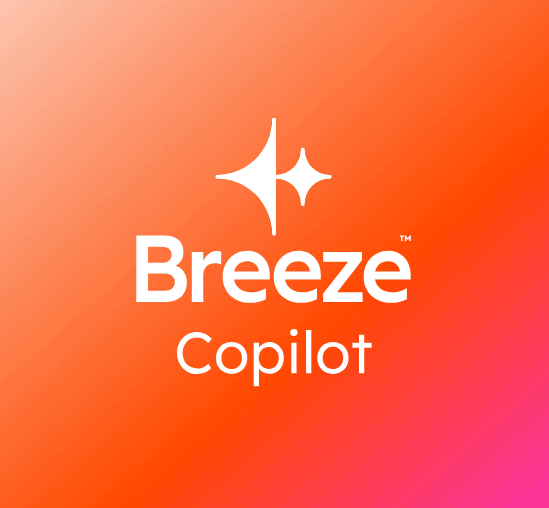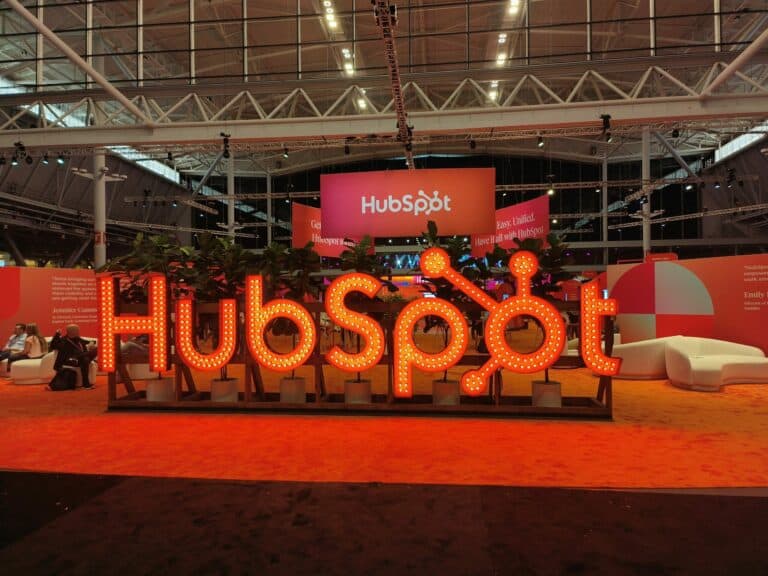At INBOUND 2024, HubSpot advanced its AI capabilities by introducing four specialized AI Agents. According to the company, these are not merely tools but new digital colleagues capable of handling specific tasks. Why should your company hire these colleagues at HubSpot?
During HubSpot’s keynote at INBOUND 2024, we were not surprised by the announcement of AI Agents for the platform. This was partly due to the prior briefing given to attending journalists but primarily because numerous technology companies had been launching their own AI Agents throughout September.
Dharmesh Shah, HubSpot’s CTO and co-founder, was given the difficult task of profiling his company’s announcement from the surge of AI innovations. To do so, he seized on the company’s relation to Apple’s vision. “When the iPhone was introduced, there was an important thought that Apple sent out into the world besides the device: ‘There’s an app for that.’ At HubSpot, we started working with that thought and thinking from ‘There’s an Agent for that.'”
Shah emphasizes that our perspective on AI Agents should shift from viewing them as mere tools to considering them as colleagues. While these agents aren’t intended to replace humans, they do become colleagues who take tasks away from us and perform them independently.
Loyalty to marketers
In announcing AI Agents, HubSpot is staying true to what it excels at: marketing. The company recognizes that marketing professionals often struggle with tool overload when creating campaigns. On average, a marketer would use five tools to launch a marketing campaign on different sites and in different formats.
The number of tools should decrease by writing off tasks to AI Agents, which we will call the new colleagues, following Shah’s perception. These colleagues have a very specific defined set of tasks they can take on. While human colleagues typically require flexibility and often expand their roles, these AI colleagues maintain focused specializations.
Half of the AI Agents announced are there to tackle the task package of marketers. They launch under the names Breeze Content Agent and the Breeze Social Media Agent. One to help write out blogs and one that can draft posts for social media channels.
HubSpot does manage to break away from the marketing-narrative with the AI Agents. Two other AI Agents were announced for sales and customer service, but marketing clearly remains one of its main focuses with two assistants.
A more comprehensive overview of the four launched AI Agents and their functionalities can be found in this article: HubSpot deploys specialized AI agents on platform
AI sometimes center-stage
The new customer service colleague, Customer Agent, is the only AI agent to interact with customers. The other AI tools operate internally. The results may be publicly visible, but a follower on LinkedIn should not notice that a new post was put together by Breeze.
So why is it that a customer query may be clearly solved by AI? This stems from the need for enhanced responsiveness. After all, AI does not work only during office hours and is easier to scale up during peak periods. A new employee for customer service cannot be found in half a day. When equipped with access to relevant business systems and autonomous reasoning capabilities, AI becomes a valuable asset in customer service operations.
In marketing circles, there’s often hesitation around acknowledging AI-generated content. Marketers rarely publicize when ChatGPT contributes to their blog posts. However, we hear in conversation with Julia Pilkes, Senior Director of Marketing for EMEA, that this will change as successful marketers won’t spend their time writing blogs or putting together podcasts in the coming years anyway.
The time saved should be devoted to building personal relationships with customers. Shah reinforces this point regarding job security: “Humans are more than the sum of their tasks. We bring emotions and personal narratives that enable genuine human connections.”
Value dependent on data connection
So the world is slowly changing as AI takes an increasingly important place and invades work life. This is the reality in all businesses, and that is why HubSpot is just one of many companies offering AI Agents. Do they posess the resources to make their offerings truly distinctive?
The capabilities of these Agents – blog writing, customer service assistance, sales prospect generation – while appealing, aren’t groundbreaking innovations. These use cases are already familiar territory in the AI landscape.
Still, according to the company, there is a reason why users are using AI in HubSpot’s platform and are not looking for the relevant AI tool for their needs themselves. HubSpot ensures that the AI is integrated to the company’s data, making the output more relevant to the user. With years of using HubSpot products, Breeze knows what corporate identity a social media post is formatted in, who the key customers are, which companies are the biggest challengers, and more. The AI colleague leverages these data sources in its decision-making process. That’s where HubSpot provides the value, as do other providers of these types of tools, by the way.
A critical requirement is that the company offering the AI Agent has strong data tools and insights, which HubSpot addressed last year with the acquisition of Clearbit. According to CEO Yamini Rangan, the acquisition was necessary to make the collected data actionable.
Combination of available AI tools
HubSpot takes care of linking the data sources with the AI tools. They leave the development of the tools to the more specialized AI companies. In that area, HubSpot does not want to get involved, says Matt Schnitt, Senior Director of Product at HubSpot. “While other AI tools aim for broad market appeal, we’ve chosen specific focus areas where we can deliver detailed, market-specific solutions.”
Schnitt says that’s why the company prefers not to waste time developing AI. “There is a large supply of well-developed LLMs available. That makes it less interesting to enter the arena of AI development yourself.” Breeze operates on a combination of open-source and commercial LLMs, selecting specific models based on user profiles and requirements. “That overall package HubSpot has molded into a conversational interface because that’s what users are used to.”

In our view, the presentation of Breeze was still to be seen as an extension of the possible acquisition by Alphabet. That option was considered several months ago, but ultimately fell through. We know the rectangular asterisk from Gemini, but Schnitt assures us it is purely coincidental. Breeze has a wide range of choices in the LLMs it relies on. Does OpenAI have a stronger version of GPT available than Google can offer with Gemini? Then HubSpot is free to choose GPT as the LLM that operates in Breeze.
‘Easy, fast and unified’
Over the next few years, HubSpot’s roadmap is focusing heavily on AI. In that area, the company will have to grow on its own after Alphabet’s acquisition was abandoned. How will that strategy be shaped? Pilkes outlines their strategy: “We are going to upmarket, but we don’t want to lose sight of small businesses while doing so. When building our solutions, we always have the customer in mind. Our ‘Easy, fast and unified’ approach prioritizes customer needs across all business sizes.”
This broad market approach presents both opportunities and challenges. Enterprise clients with substantial budgets often seek cutting-edge solutions from providers at the forefront of innovation. To win over those markets, the innovation capacity at HubSpot falls short in our opinion. We make this reflection based on the LLMs that Breeze runs on, for which the company itself does not do any development.
From our conversation with Pilkes, though, it is clear that it is equally important for HubSpot to be able to retain its current customer base. For those customers, there will be a supply of AI Agents who can do great work, but are equally happy to take on simple tasks like answering an email.
